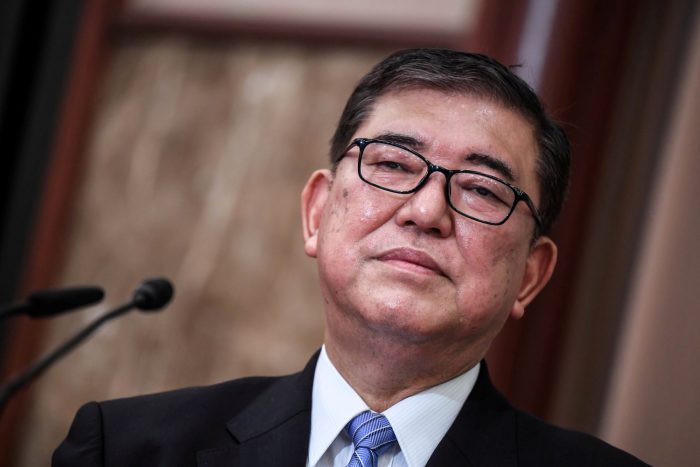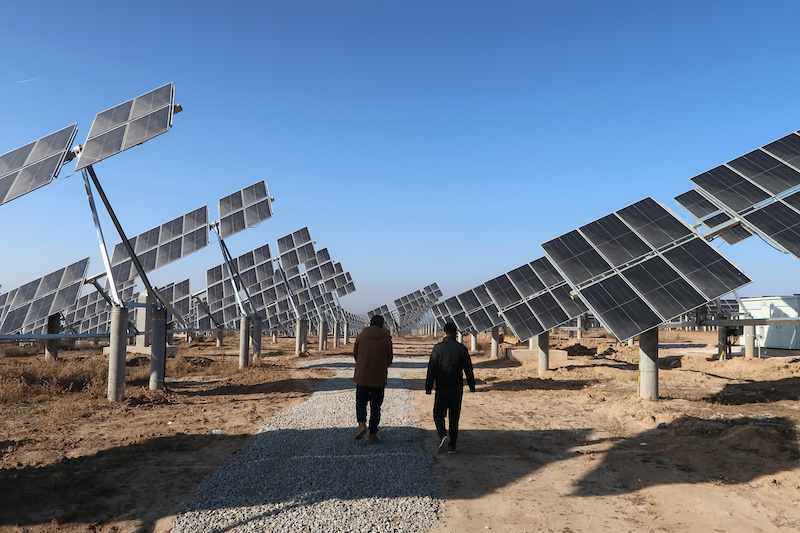Ramifications of the tariff deal that Japan frantically negotiated with the Trump Administration in recent weeks are still reverberating in Tokyo.
On Monday, Prime Minister Shigeru Ishiba said the government is ready to draw up an additional budget to manage the economic impact from US tariffs. And that likely means a further burden for the Bank of Japan.
Later, Ishiba told parliament he would not hesitate to hold talks with President Trump to ensure an agreed cut to US automobile tariffs is implemented soon.
ALSO SEE: Tesla Sales of EVs Made in China Fall by 8.4% in July
The PM has drawn criticism from some opposition lawmakers for not having signed an official document with the US in clinching a trade deal last month.
Deal ‘rushed to cut car tariffs’
But he said: “Creating a document could have delayed the timing of tariff cuts. That was our biggest fear.
“He is not a typical counterpart and could overturn rules,” Ishiba said about Trump’s negotiating style.
His response is somewhat ironic, given Ishiba’s top officials said in May they were in no rush to sign a trade deal – in a bid to delay the negotiations till after an important Upper House ballot.
Ishiba also said he had “absolutely no hesitation” to hold talks with Trump to have Washington execute the tariff cut soon, though he declined to comment on when such talks could take place.
“Both countries will begin executing what was agreed upon, which is harder than agreeing on a deal,” Ishiba said, signalling his intention to stay on as premier to see through the process.
Ishiba is under pressure from within his ruling Liberal Democratic Party to step down as prime minister to take responsibility for the party’s huge defeat in last month’s upper-house election.
Japan’s trade deal struck with Trump last month lowers US tariffs on imports of goods, including automobiles, easing the pain for the export-reliant economy.
But there is no clarity on when US tariffs for automobiles and auto parts will be cut to 15% from the current 25%, clouding the outlook for Japan’s fragile recovery.
In the same parliament session, Japan’s top trade negotiator, Ryosei Akazawa, said it was hard to say how soon the US could actually implement automobile tariffs, though he added it took “more than a month” in the case of Britain.
Extra budget possible next month
After suffering a stinging defeat in last month’s upper house election, Ishiba’s minority coalition is under pressure to heed opposition parties’ demand to boost spending and cut Japan’s sales tax.
“We will compile one if necessary, taking into account discussions with other parties,” Ishiba told parliament when asked by an opposition lawmaker whether the government would compile an extra budget that includes tax cuts.
If the government were to compile a stimulus package, an extra budget to fund the spending would be submitted to an extraordinary parliament session likely to be convened in September.
Compiling an extra budget has become a regular practice in Japan as politicians call for increasing spending to support the economy, keeping its fiscal policy loose even as other countries rolled back crisis-mode spending after the Covid-19 pandemic.
Ishiba has not commented on the possible size of an extra budget, but some analysts expect it could reach around 10 trillion yen ($67.68 billion), which would require additional debt issuance.
The extra budget would come on top of a record 115.5 trillion yen budget for the current fiscal year. Of the total, 24.5% is being spent on financing debt. Such deficit funding costs will likely rise further as the Bank of Japan eyes more interest rate hikes, analysts say.
With rising food costs hurting consumption, opposition parties have called for slashing or eliminating Japan’s sales tax rate, which is set at 10% except for 8% for food.
Ishiba, who is regarded as a fiscal hawk, has been cautious about cutting the sales tax, which funds social welfare costs for a rapidly ageing population.
A flurry of big spending packages and ballooning social welfare costs for a rapidly ageing population have left Japan with a debt pile 250% the size of its economy – the highest among major economies.
- Reuters with additional input and editing by Jim Pollard
ALSO SEE:
Nikkei Jumps After Trump Strikes 15% Tariff Deal With Japan
Japanese PM Ishiba Vows to Kick on Despite Loss of Upper House
Japan, South Korea Desperate to Reduce 25% Tariff by August
Japan’s PM Defends National Interest as Trump Ramps up Threats
Japan Says It’s In No Rush For A Trade Deal With The US
White House Invites Asian Allies to See Alaska LNG Project
Japan May do Pipeline, Energy Deals to Appease Trump
Yen Rises After Bank of Japan Lifts Rates to Highest Since 2008
SoftBank, UAE’s MGX Join $500bn Data Centre Deal With OpenAI
























